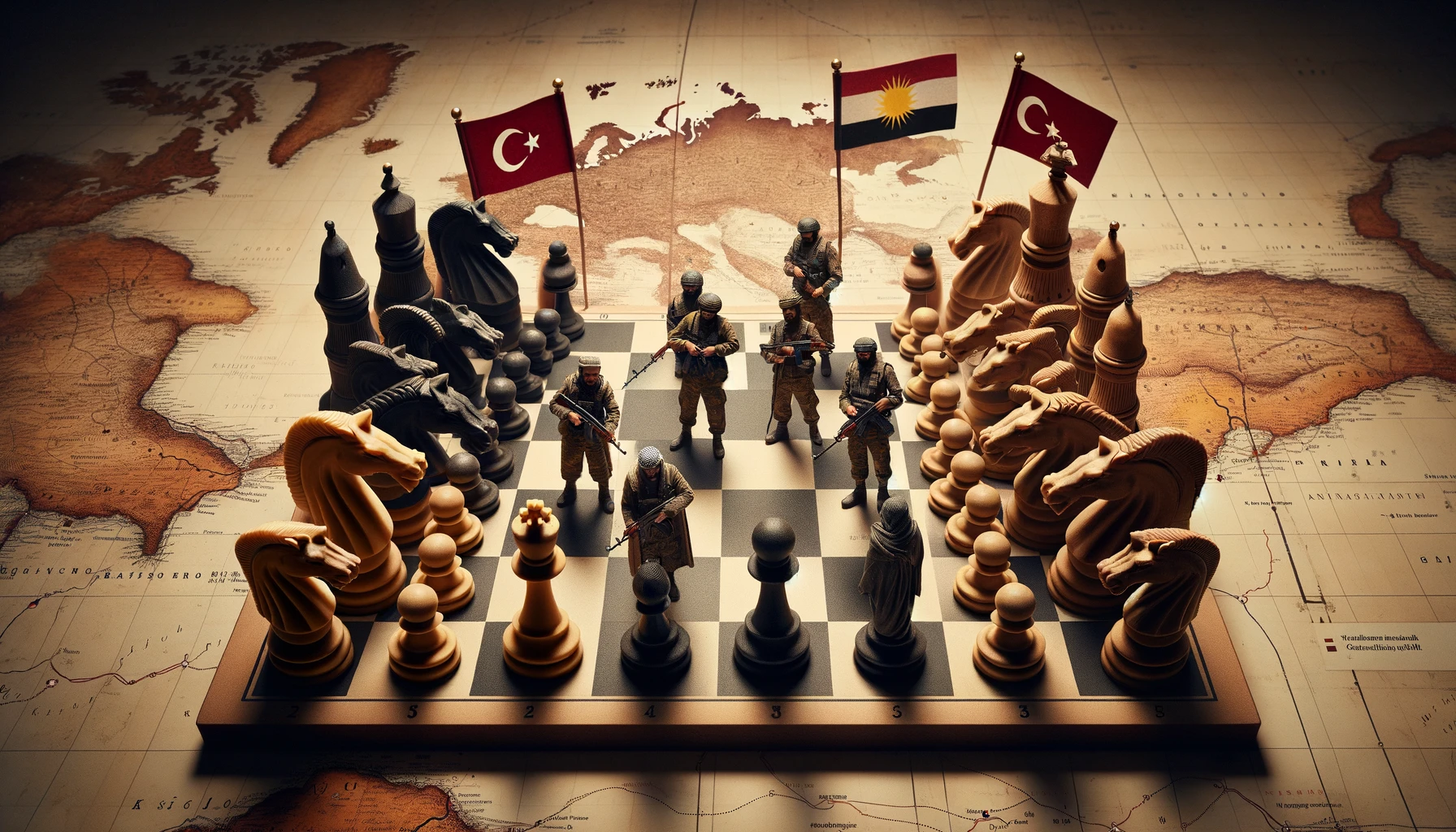Within the Month: Kurdish gains and Turkish reassertiveness
Written 2 November 2015

The Syrian Kurds have recently announced a US-backed offensive in Hasakah Province to take territory away from ISIL. They will be joining forces with Arabs and Assyrians in the region, to form the Syrian Democratic Forces. By including other ethnic groups, the Kurds are sending an indication that they seek to expand beyond their traditional territories. Furthermore, as the Kurds are seeking to expand and negotiate for greater self-rule, they need to strengthen their hand. The best way they can do this is by becoming indispensable to the anti-ISIS fight by making further offensives against them.
The Kurds will thus leverage their position between the US and Russia. Although the US has been supportive of the Kurds, the former’s alliance with the Turks could put them in rough grounds. However, the Russians have also been negotiating with the Kurds and they have much less to lose from an angered Turkey; the Russians have been accused of supporting the PKK inside of Turkey before. The Russians have also encouraged the Kurds to take the border town of Jarablus, the main ISIL supply route from Turkey, and Erdogan has said that he will take action if this town is taken.
Meanwhile, Turkey is facing multiple problems of its own. Although the AKP regained its majority in parliament, accusations of rigged elections and political violence are abounding. The PKK insurgency continues and fears that Kurdish gains in Syria and Iraq will embolden the PKK are still present. However, now that Erdogan has won his election, he faces fewer problems from (although they still exist) freeing him up to deal with the worsening geopolitical situation in the region.
Turkey is being slowly surrounded by Russia, giving Putin much more leverage over what goes on within Erdogan’s sphere of influence and within Turkey itself — regarding energy and the PKK. As mentioned in previous posts, Turkey and Russia have many conflicting interests and any partnerships would simply be temporary. Erdogan has little option but to reassert Turkish power, not only to regain its sphere of influence, but also to extricate himself from any ramification which increased Russian power could have.
As mentioned previously, Turkey has been accused of supporting ISIL in Syria — indeed, these accusations even include Turkish support for the recent Ankara bombings which killed 102 protestors. If accurate, this support will continue (hence why the Turks are so frightened that its border with ISIL will be lost to the Kurds). Whatever the case, the Turks will continue their attacks on YPG positions in Syria as part of its reassertiveness campaign. They will also likely intensify their support of the FSA. If FSA can prove to be more effective at holding Russian and regime forces in Syria, it would seriously hamper Russian abilities to continue its offensive in the region.
Energy is also likely to become more important. Turkish Stream negotiations were set to continue after Turkish elections, and now that Erdogan has won, he could leverage Russian energy geopolitics. Furthermore, as Russia is increasing its ties with countries which the Turkish Stream would pass through (Serbia), Turkey could rekindle relations with its Balkan neighbors. However, this is unlikely to take a priority for Erdogan as this does not pose an existential threat to him like the Kurdish situation does.
A litmus test of how far this will go will be a Kurdish advance westwards — if these regions were taken, there would be open conflict, otherwise it would be more covert. Even if the border regions were not taken, Kurdish gains are still likely and an advance on ar-Raqqah, the ISIL capital, is certainly still possible. The Turks are not as afraid of the Russians as some others in the region may be, and Erdogan has been known to have a hot temper. Indeed, Erdogan has even risked open conflict with Russia by shooting down their planes that went into Turkish airspace.
There are two scenarios where I could be completely wrong. The first is if a military coup takes place in Turkey. Although possible, Erdogan has significantly weakened the military and what has remained is quite loyal to him. The second is Russia appeasing the Turks. In order for this to happen, the Russians would need to cut off contact with the Kurds and perhaps even bomb them. However, this will only hurt Putin’s offensive in Syria, as it would significantly weaken what has been the most effective counter to ISIL. Therefore, since I see both these scenarios as unlikely, I foresee Turkish geostrategic reassertiveness in the near future.
Great article. Not hard to see, but surprising how so few people saw the recent events coming. Keep it up!